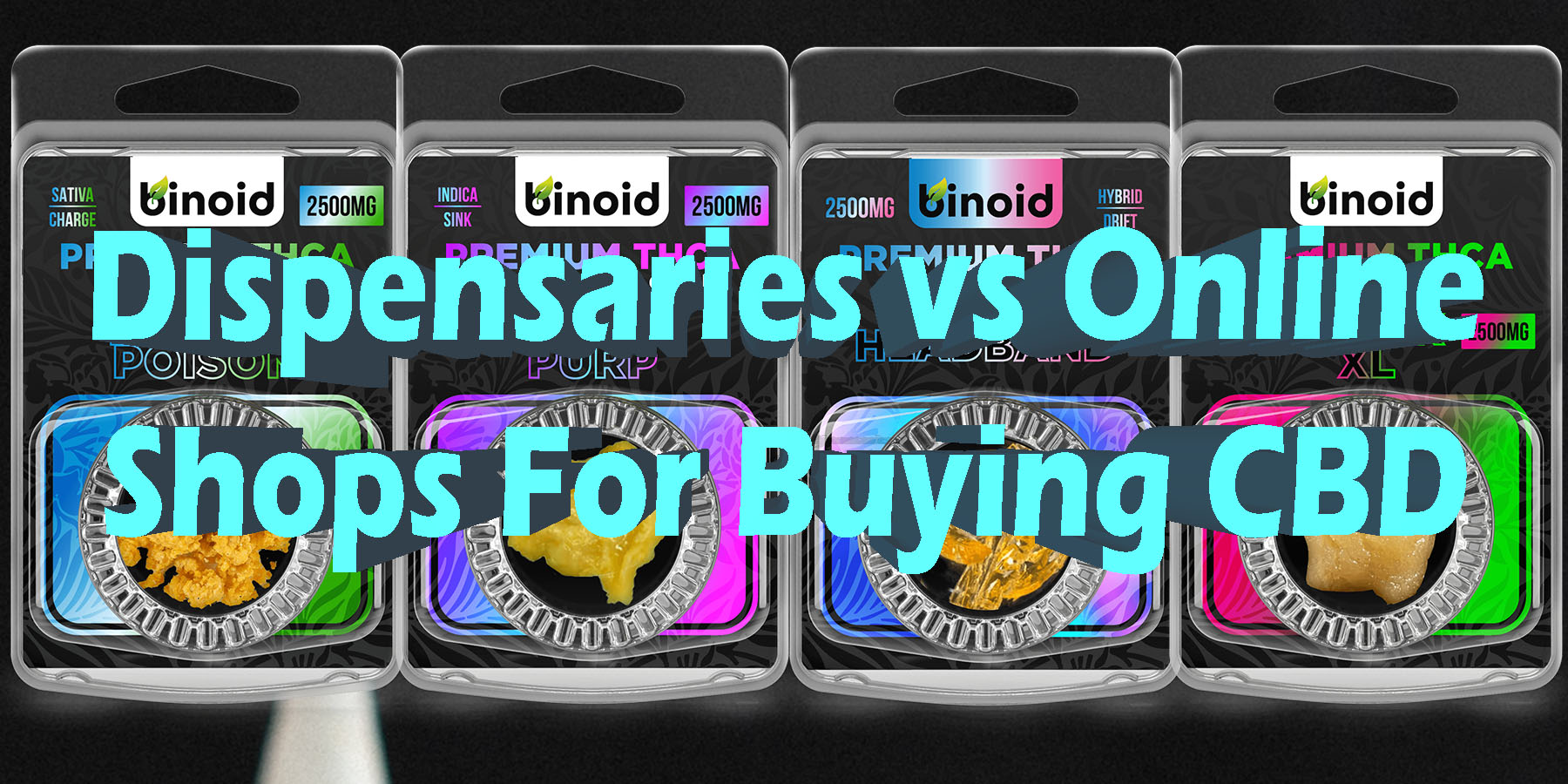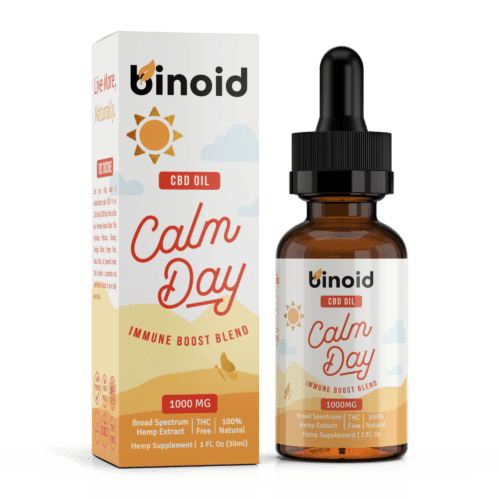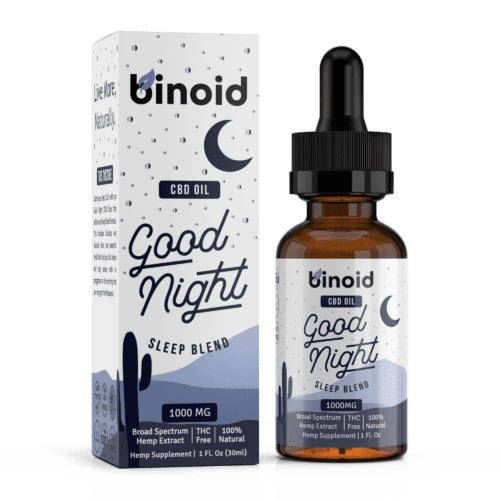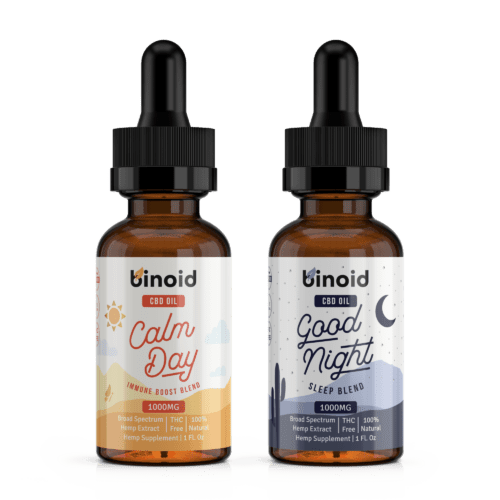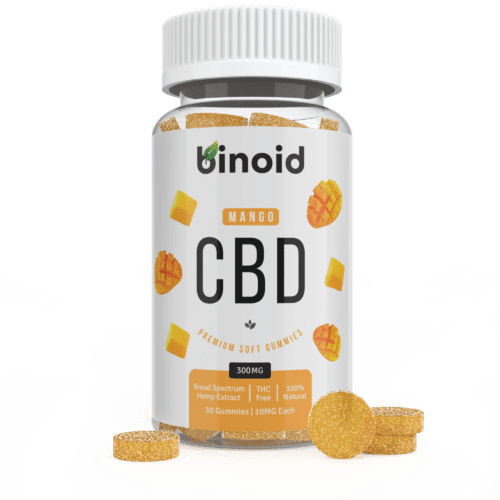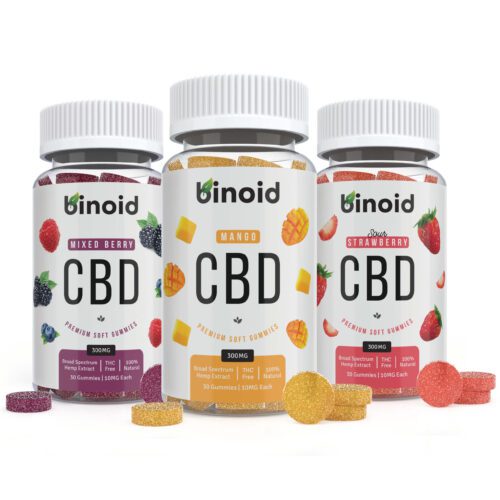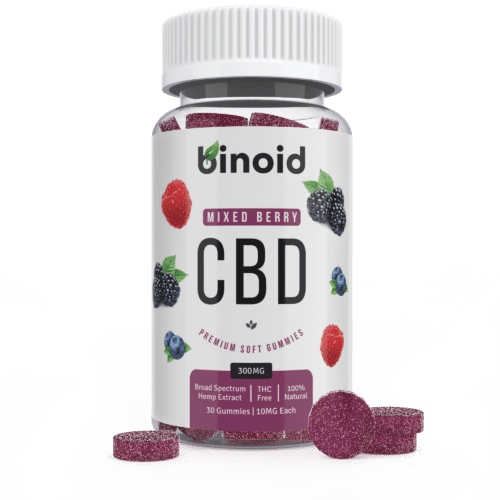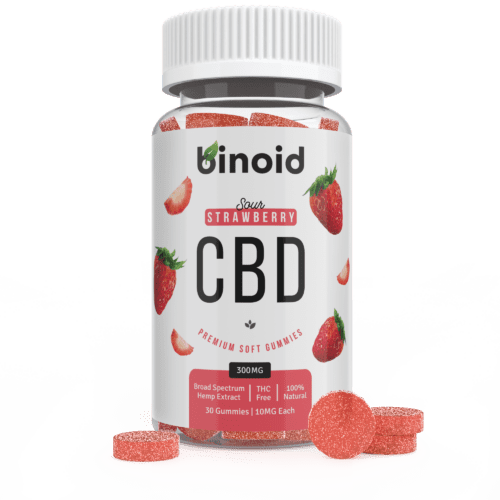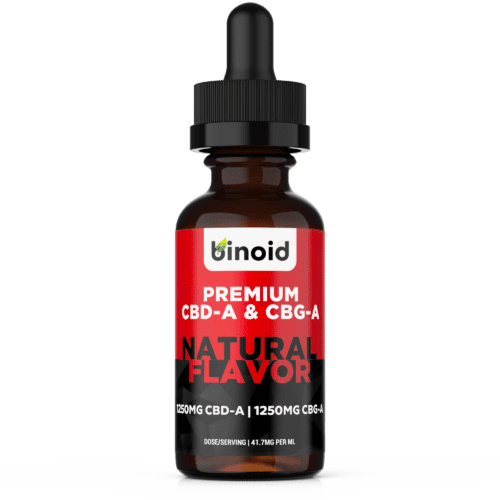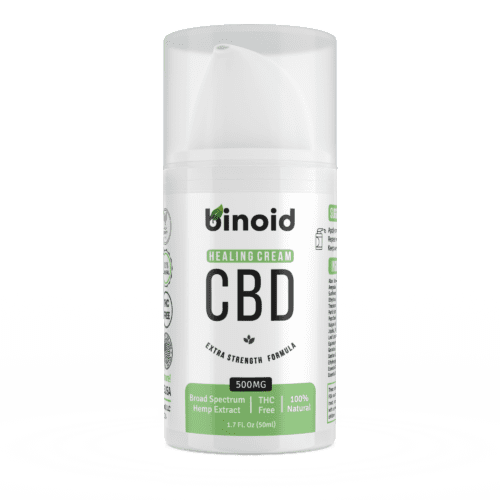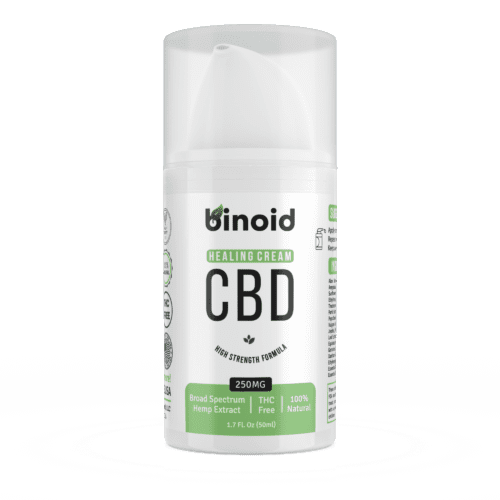The world of plant-derived compounds is vast and ever-unfolding, with certain molecules stepping forward to capture global attention due to their unique properties and widespread appeal. Cannabidiol, universally recognized as CBD, stands prominently within this category, having garnered immense interest for its distinct characteristics and versatile applications.
As public awareness and curiosity surrounding CBD have surged, the practical consideration of how and where to procure it has become a central question for many. For consumers, particularly within the American market, this journey typically involves navigating a choice between the traditional, interactive experience of a physical dispensary and the broad, digitally-driven expanse of online cannabis and hemp retailers. Understanding the nuances of each option is paramount to making a purchasing decision that aligns with individual needs and preferences.
To Buy CBD Products Click Here
Recommended products
Getting to Know Cannabis Dispensaries and Online Cannabis/Hemp Shops and Their Purposes
Before we delve into the specifics of where one might source CBD, it’s beneficial to establish a clear and comprehensive understanding of the two principal types of retail environments that serve consumers in the expansive cannabis and hemp industry. Both the conventional brick-and-mortar dispensaries and their increasingly popular digital counterparts, online shops, fulfill crucial, albeit sometimes overlapping, roles in facilitating consumer access to a diverse spectrum of plant-derived compounds and the multitude of products formulated from them.
Each of these retail categories operates under a unique business model, cultivates a distinct consumer atmosphere, and employs varied strategies for customer engagement and service, all of which are profoundly influenced by the complex and evolving tapestry of regulatory frameworks and shifting consumer expectations.
Understanding Cannabis Dispensaries and Their Purpose
A cannabis dispensary is a state-chartered, physically established retail location that is legally authorized to sell cannabis and an array of cannabis-derived products to eligible adult consumers, operating in strict compliance with the specific regulations set forth by its licensing state. These establishments often constitute the most traditional and visibly recognized points of access for individuals, especially within those states that have successfully implemented comprehensive regulatory systems for either medical or adult-use cannabis programs.
The actual physical design, layout, and ambiance of cannabis dispensaries can exhibit significant variation, ranging from sleek, minimalist boutiques that project an image of modern sophistication and high-end retail, to more functional, clinically oriented spaces where the primary focus is on straightforward, efficient product access and well-informed consultations.
Regardless of their particular aesthetic or branding approach, all legitimately licensed dispensaries are meticulously engineered with paramount attention paid to robust security measures and unwavering adherence to all applicable regulatory mandates, typically featuring controlled and monitored entry points where trained staff members rigorously verify the age and, where pertinent, the medical cannabis registration status of each prospective customer before granting them access to the main sales floor where the diverse product offerings are showcased and transactions occur.
Upon being granted entry into the primary retail area of a dispensary, customers are generally greeted by well-organized, often illuminated, display cases that feature a wide and varied assortment of available products, which are frequently systematically categorized by type—such as dried cannabis flower, diverse edible formulations (ranging from gummies to baked goods), potent cannabinoid concentrates, liquid tinctures and sublingual sprays, and various topical applications designed for external use. The prevailing atmosphere within these establishments is intentionally cultivated to be both inviting and highly informative, with knowledgeable staff members, who are commonly and affectionately referred to as “budtenders,” readily available and eager to provide personalized guidance and assist patrons throughout the often complex product selection process.
These essential frontline employees are expected by both their employers and their clientele to possess a thorough and up-to-date understanding of the dispensary’s complete product inventory, encompassing detailed knowledge of specific cannabinoid and terpene profiles, the potential experiential outcomes associated with different products, and the recommended best practices for usage, thereby empowering customers to make judicious and well-informed choices that precisely align with their individual preferences, desired experiences, and specific wellness goals.
The fundamental purpose and societal role of a state-licensed cannabis dispensary extend considerably beyond the mere commercial function of selling cannabis-related goods; it also serves as an invaluable and often highly trusted community resource for accurate, reliable cannabis information and, in numerous localities across the nation, stands as a prominent and tangible symbol of the ongoing, significant evolution in both legal frameworks and broader societal perceptions surrounding the cannabis plant and its myriad uses.
Dispensaries are entrusted with the critical and non-negotiable responsibility of ensuring that every single transaction conducted within their premises meticulously complies with all pertinent state and local statutes, ordinances, and regulatory directives, which can encompass precise limitations on permissible purchase quantities per individual, highly specific and detailed requirements for consumer product packaging and informational labeling, and comprehensive, often technologically advanced, systems for meticulously tracking and accurately reporting all sales activities to the relevant state regulatory bodies for purposes of diligent oversight and accountability.
This unwavering commitment to operating within a comprehensive and exacting regulatory structure is a defining characteristic and operational imperative of all legitimately licensed dispensaries, as they conscientiously strive to furnish a secure, transparent, and unambiguously lawful channel for public access to cannabis while actively and diligently working to prevent any potential diversion of regulated products to unauthorized individuals or illicit, unregulated markets.
Taking things a step further, cannabis dispensaries frequently make substantial and meaningful contributions to enhancing overall consumer education by consistently offering a wide array of valuable resources, which may include expertly curated informational brochures and detailed product literature, access to online knowledge bases, sponsorship of community workshops or seminars, and the provision of personalized, one-on-one consultations with trained staff, all of which are thoughtfully designed to assist individuals in better understanding and navigating the often complex and multifaceted world of cannabis, its various active chemical constituents, and the diverse methods of its consumption.
This steadfast educational commitment can prove to be particularly beneficial and reassuring for individuals who are relatively new to the world of cannabis or those who are cautiously and inquisitively exploring less familiar cannabinoids or perhaps venturing to try novel consumption methods or product categories for the very first time.
By consistently fostering and diligently maintaining a controlled, highly professional, and consistently informative retail environment, dispensaries actively endeavor to destigmatize the responsible and informed use of cannabis and vigorously promote conscientious consumption habits and harm-reduction strategies among their broad and diverse clientele, effectively positioning themselves as the primary, trusted, and highly regulated interface between legal cannabis cultivators, innovative and compliant product manufacturers, and the end-users within a meticulously structured and closely monitored state-level system.
Recommended products
Understanding Online Cannabis/Hemp Shop and Their Purpose
An online cannabis or hemp shop is fundamentally a digital e-commerce platform, offering consumers unparalleled convenience to browse, research, compare, and purchase an extensive variety of hemp-derived products, including a vast selection of CBD items, for secure and direct delivery to their homes or other designated private locations.
In significant contrast to their traditional brick-and-mortar dispensary counterparts, these internet-based retail operations are not geographically tethered in the same manner, a characteristic that empowers them to potentially reach and serve a substantially broader and more geographically dispersed customer base, frequently extending their sales and shipping capabilities across state lines, provided that all offered products strictly comply with all applicable federal and individual state laws, particularly those pertaining to hemp-derived cannabinoids like CBD which must rigorously adhere to the federally mandated <0.3% Delta-9 THC concentration limit by dry weight.
The “physical structure” of such an enterprise is, in reality, its professionally developed, meticulously maintained, and feature-rich website or its dedicated mobile application, which is intentionally engineered for optimal user-friendliness, intuitive product discovery and navigation, powerful and precise search functionalities, and exceptionally secure, multi-layered encrypted transaction processing, often substantially enriched with comprehensive and detailed product descriptions, high-resolution product imagery from multiple angles, authentic and unfiltered customer-generated reviews and ratings, and a wealth of valuable, regularly updated educational content such as informative blog articles, detailed usage guides, and comprehensive Frequently Asked Questions (FAQ) sections.
The core mission and primary objective of a reputable online hemp shop are to consistently deliver an unmatched level of shopping convenience, ensure the utmost degree of customer privacy and discretion throughout the entire purchasing process, and provide broad, unfettered public access to an exceptionally diverse and comprehensive assortment of high-quality, lab-tested hemp-derived items.
These digital commerce ventures can, and often do, operate based on several distinct and viable business models: some prominent entities function as direct-to-consumer (DTC) brands, which signifies that they conceptualize, formulate, meticulously manufacture, and exclusively retail their own proprietary line of CBD and other hemp-derived products directly through their dedicated online sales portal, thereby maintaining stringent, end-to-end control over the entire value chain, from the initial careful sourcing and vetting of raw hemp materials and the implementation of rigorous quality assurance protocols during manufacturing, to the final product branding, marketing strategies, and the holistic management of the overall customer experience.
Conversely, a significant number of other online shops choose to adopt a curated marketplace model, strategically positioning themselves as centralized digital platforms that expertly feature and retail an extensive range of products carefully sourced from a multitude of different reputable third-party brands, thus offering consumers a significantly broader comparative selection and the unique, streamlined ability to explore, evaluate, and contrast various manufacturers, diverse product formulations, different cannabinoid potencies, and a wide spectrum of price points, all conveniently located within a single, easily accessible, and user-friendly virtual shopping environment.
These digitally-native retailers consistently place an extremely high degree of emphasis on continuously enhancing and optimizing the overall end-to-end customer experience, primarily through the strategic and ongoing implementation of sophisticated, aesthetically pleasing, and highly user-centric web design principles, the transparent and readily accessible provision of comprehensive, accurate, and easily understandable product information (including detailed cannabinoid profiles and full ingredient lists), and the steadfast maintenance of exceptionally responsive, genuinely knowledgeable, and truly empathetic customer support services, which are commonly and conveniently made accessible to consumers through a variety of easily reachable communication channels, including seamlessly integrated live chat functionalities directly on the website, dedicated and monitored email support addresses, or direct toll-free telephone helplines staffed by trained product specialists.
Substantial and continuous investments are characteristically made by these online businesses in acquiring and maintaining state-of-the-art, multi-layered secure payment gateway technologies and in developing and implementing carefully considered, discreet, and unbranded packaging and shipping solutions, all designed to meticulously safeguard customer privacy from initial order placement through to final product delivery and ensure complete consumer satisfaction upon the timely receipt of their accurately fulfilled orders.
Furthermore, a defining and non-negotiable characteristic of the vast majority of highly reputable online hemp retailers is their proactive, unwavering, and clearly demonstrated commitment to fostering marketplace transparency and cultivating lasting consumer trust by prominently, clearly, and consistently displaying or providing direct links to exhaustive third-party laboratory test results, universally referred to in the industry as Certificates of Analysis (CoAs), directly on individual product description pages or through a clearly designated, easily navigable, and permanently accessible section of their website dedicated to quality assurance and compliance documentation.
Ultimately, online cannabis and hemp shops are meticulously architected and continually refined with the overarching goal of simplifying, streamlining, and significantly elevating the entire consumer purchasing journey from initial product discovery to post-purchase support, making it as fluid, information-rich, operationally efficient, and personally satisfying as is technologically and logistically feasible for a modern, discerning, and digitally-proficient global clientele that increasingly prioritizes and unequivocally values unparalleled convenience, virtually unlimited product choice, and the intrinsic, empowering flexibility to engage in commerce and make purchases from almost any geographical location at any conceivable time of day or night without the constraints of traditional retail hours or physical store proximity.
They skillfully and strategically employ a sophisticated and integrated array of cutting-edge digital marketing techniques, advanced and continually optimized search engine optimization (SEO) tactics, and a deep, ever-expanding reservoir of engaging, authoritative, and high-quality educational content (such as detailed articles on cannabinoid science, benefits of different product types, dosage guidance, and industry news) to effectively identify, attract, deeply engage, thoroughly inform, and ultimately retain their precisely targeted demographic segments and ideal customer profiles, thereby playing an undeniably instrumental and increasingly significant role in augmenting general market accessibility and contributing powerfully to the broader societal normalization, destigmatization, and widespread responsible acceptance of federally legal, high-quality hemp-derived cannabinoids throughout the diverse and evolving cultural and regulatory tapestry of the nation and often beyond.
Recommended products
Exploring the Well-Regarded Cannabinoid Known as CBD
Having established a clearer understanding of the retail environments where cannabis and hemp products are typically sourced, our focus now shifts comprehensively to one of the most well-known and extensively researched cannabinoids: Cannabidiol (CBD) is a naturally occurring compound, found abundantly in both hemp and cannabis plants, has garnered immense global attention and widespread popularity, largely due to its distinct, non-intoxicating profile, meaning it does not produce the euphoric “high” typically associated with its more famous cousin, Delta-9 THC.
Instead, CBD has become synonymous with a vast array of wellness applications and is sought after by a diverse range of individuals seeking to support their overall well-being, manage everyday stresses, or achieve a greater sense of calm and balance in their lives. Its versatility is reflected in the sheer breadth of products available, from oils and tinctures to edibles, topicals, and beyond, making it one of the most accessible and widely utilized cannabinoids on the market today.
The history of CBD, while seemingly modern due to its recent explosion in popularity, actually dates back many decades, intertwined with the pioneering scientific exploration of the cannabis plant. Although cannabis has been used for millennia for various purposes, the specific isolation and identification of individual cannabinoids began in the 20th century. CBD was first isolated from cannabis in the 1940s by multiple research groups, with notable early work by American chemist Roger Adams, who isolated CBD, and later by Dr. Raphael Mechoulam in Israel, who, in the 1960s, elucidated the full chemical structure of CBD and THC, significantly advancing our understanding of these compounds.
For many years, CBD remained in the shadow of THC due to the latter’s psychoactive effects, which drew more scientific and public attention. However, a growing body of preclinical research, coupled with compelling anecdotal reports and a shifting legal landscape—particularly the passage of the 2018 Farm Bill which federally legalized hemp cultivation and hemp-derived CBD products containing less than 0.3% Delta-9 THC—catapulted CBD into the mainstream consciousness, transforming it from a relatively obscure molecule into a household name and a burgeoning global industry.
Delving into the science and chemistry of Cannabidiol (C21H30O2), it is one of over a hundred phytocannabinoids found in cannabis plants, and it shares the same chemical formula as THC but has a different arrangement of atoms, which accounts for its vastly different physiological effects. Unlike THC, which directly binds to and activates the CB1 receptors in the brain (leading to psychoactivity), CBD has a low binding affinity for CB1 and CB2 receptors. Instead, its therapeutic potential is thought to stem from more indirect interactions with the endocannabinoid system (ECS), as well as its influence on various other non-cannabinoid receptor systems and ion channels. For example, studies suggest CBD can enhance the body’s natural levels of endocannabinoids (like anandamide) by inhibiting the enzymes that break them down, and it may also interact with serotonin receptors (specifically 5-HT1A), vanilloid receptors (TRPV1), and orphan receptors like GPR55.
Plus, CBD products are often categorized based on their cannabinoid content:
Full-Spectrum CBD: Contains all phytochemicals naturally found in the plant, including CBD, trace cannabinoids (like CBG, CBN, and a legal amount of THC), terpenes, and flavonoids, which work together to produce an “entourage effect”.
Broad-Spectrum CBD: Contains a similar array of cannabinoids and terpenes but has all detectable THC removed.
CBD Isolate: The purest form of CBD, with all other plant compounds removed.
When considering the effects of CBD, it is paramount to emphasize its non-intoxicating nature; it does not produce the disorienting or euphoric effects associated with THC. Instead, users often report a wide range of subtle yet discernible experiences that contribute to a sense of overall well-being. Many individuals turn to CBD seeking potential relief from everyday physical discomforts, a feeling of calmness and relaxation, or support for healthy sleep cycles.
Some users report enhanced focus and mental clarity when incorporating CBD into their daily routines, finding it helps to soothe a busy mind without causing sedation. Studies and anecdotal accounts suggest that CBD may help the body maintain balance by interacting with the endocannabinoid system, which plays a crucial role in regulating various physiological processes. The specific experience with CBD can vary significantly from person to person, influenced by factors such as the dosage, the type of CBD product used, the method of consumption, individual biochemistry, and the specific reasons for use. It is a compound often explored for its potential to support a balanced lifestyle and promote a general sense of wellness.
Recommended products
CBD’s immense popularity has led to its incorporation into an exceptionally wide and ever-expanding variety of product types and delivery methods, designed to cater to diverse consumer preferences, lifestyles, and specific wellness goals. Below are some of the most prevalent and readily available forms you are likely to encounter when exploring the CBD market:
Flower: CBD-rich hemp flower, which can be smoked or vaporized, offers a traditional consumption method and rapid onset of effects; this includes Loose Buds from various strains (often categorized as Indoor Flower for premium quality, Outdoor Flower for cost-effectiveness, or Flower Smalls which are smaller, more affordable buds), unique preparations like Moonrocks (hemp flower coated in CBD concentrate and kief), and convenient Pre-Rolls/Joints ready for immediate use.
Vapes: Vaping CBD provides a quick and efficient delivery method with high bioavailability, with options including Pre-filled Cartridges containing CBD distillate and terpenes that attach to standard vape batteries, Disposable Vape Pens which are all-in-one, user-friendly devices, and Bottled CBD Vape Juice (e-liquid) for use in refillable vaporizer devices, allowing for more customization of flavor and potency.
Edibles: CBD edibles offer a discreet, convenient, and often flavorful way to consume CBD, with effects that are typically longer-lasting due to digestion and metabolic processes; this popular category includes gummies in various shapes and flavors, hard candies, refreshing mints, and a wide array of baked goods like cookies, brownies, and other confections infused with precise doses of CBD.
Drinks & Beverages: An increasingly popular category, CBD-infused drinks and beverages provide a refreshing and often sociable way to ingest CBD, ranging from sparkling waters, sodas, and teas to coffee, sports drinks, and powdered drink mixes that can be easily incorporated into one’s daily hydration routine, offering a novel alternative to other consumption methods.
Concentrates: For those seeking higher potencies of CBD, concentrates such as CBD wax, shatter, crumble, or pure CBD isolate powder are available; these are typically consumed via dabbing with a specialized rig or vaporizer, or can be added to flower or used in DIY formulations, offering a powerful and fast-acting experience.
Tinctures: CBD tinctures, typically a blend of CBD extract (full-spectrum, broad-spectrum, or isolate) and a carrier oil like MCT, hemp seed, or olive oil, are packaged in dropper bottles for precise sublingual administration (under the tongue), allowing for relatively rapid absorption and easy dosage adjustment, making them one of the most versatile and widely used CBD product types.
Capsules & Tablets: Offering a familiar and highly convenient method of consumption, CBD capsules and tablets provide pre-measured, consistent doses of CBD in an easy-to-swallow format, similar to traditional supplements, making them ideal for those seeking straightforward, discreet, and tasteless integration of CBD into their daily wellness regimen.
Topicals: CBD-infused topicals, such as creams, balms, lotions, salves, and transdermal patches, are designed for external application directly to the skin, allowing CBD to interact with local cannabinoid receptors; these products are often chosen for targeted application to specific areas of the body to support skin health or provide localized comfort.
Recommended products
Why Can CBD Be Found at Either a Dispensary or an Online Shop?
The widespread availability of CBD-infused products in both state-licensed dispensaries and a vast array of online e-commerce platforms is predominantly due to its legal status, particularly when derived from hemp, as established by the Agriculture Improvement Act of 2018 (commonly known as the Farm Bill). This landmark federal legislation formally legalized hemp cultivation and de-scheduled hemp-derived cannabinoids, including CBD, by defining hemp as Cannabis sativa L. containing no more than 0.3% Delta-9 THC on a dry weight basis. Consequently, CBD products that meet this specific criterion are generally considered federally legal, which permits their sale through online channels and allows for their shipment across many state lines, contributing significantly to the cannabinoid’s ubiquitous presence in the national marketplace.
However, while hemp-derived CBD enjoys broad federal legality, CBD can also be extracted from marijuana plants (cannabis containing more than 0.3% Delta-9 THC), which remain federally classified as a Schedule I controlled substance. CBD products sourced from marijuana are therefore restricted to sale exclusively within state-licensed dispensary systems in those jurisdictions that have implemented legal medical or adult-use cannabis programs.
Furthermore, despite the federal framework provided by the Farm Bill, individual states retain the authority to enact their own, sometimes more restrictive, regulations regarding the sale, possession, and formulation of CBD products, regardless of their hemp or marijuana origin. This complex interplay between federal and state laws means that while hemp-derived CBD is broadly accessible online, dispensaries serve as the primary compliant outlets for marijuana-derived CBD and also often carry a curated selection of hemp-derived CBD products that meet their specific state’s additional regulatory standards.
Recommended products
Breaking Down the CBD Buying Matchup: Dispensaries vs. Online Shops
Selecting the optimal source for your CBD products requires a nuanced assessment of several key factors – from the variety and specificity of available items (such as full-spectrum, broad-spectrum, or isolate) and their associated price points, to the level of purchasing ease, the depth of available product information, and the particular ambiance of the shopping environment you prefer.
While both established physical dispensaries and the rapidly expanding, highly accessible online retail sector offer persuasive reasons for patronage, they ultimately cater to differing consumer needs and preferences and are distinguished by their unique sets of benefits and potential limitations, especially when considering a widely available and versatile compound like CBD. Appreciating the intricacies of this comparison calls for a detailed review of what each retail model furnishes, thereby enabling individuals to make a well-grounded decision that harmonizes with their personal requirements and shopping inclinations within the dynamic landscape of cannabinoid access.
Contender #1: Dispensaries
Choosing to purchase CBD products from a state-licensed dispensary can be an appealing option, particularly for consumers who are already familiar with the dispensary environment for other cannabis needs or for those who place a high value on in-person consultations and state-regulated product oversight.
Dispensaries, especially those operating within robust medical or adult-use cannabis programs, often provide a curated selection of CBD products that have met specific state testing and labeling requirements, which can offer an added layer of consumer confidence regarding product quality, potency accuracy, and freedom from contaminants. This is particularly relevant for individuals seeking CBD products with specific cannabinoid ratios or those derived from marijuana, which are exclusively available through these licensed channels.
The primary draw for many who choose dispensaries for their CBD purchases often lies in the direct access to knowledgeable staff, or budtenders, who can offer personalized guidance and recommendations based on an individual’s specific wellness goals or questions about how CBD interacts with other cannabinoids. This face-to-face interaction allows for a more consultative sales process, where consumers can ask detailed questions about product sourcing, extraction methods, and appropriate usage, which can be especially helpful for those new to CBD or navigating complex product choices. Furthermore, the ability to physically inspect product packaging and leave the store with the product in hand provides an immediate and tangible shopping experience that some consumers prefer over the remote nature of online transactions.
Recommended products
Pros & Cons
Evaluating dispensaries for CBD purchases involves considering both their strong points and their limitations, especially given CBD’s widespread availability through multiple channels. The very nature of their physical, regulated existence shapes these aspects, offering a unique set of benefits alongside some inherent drawbacks when compared to the digital marketplace.
Pros:
In-Person Expert Advice and Personalized Recommendations: Dispensaries provide direct access to budtenders who can offer tailored advice on CBD product selection, potential interactions, and usage, which can be invaluable for both new and experienced users seeking specific outcomes.
Access to Marijuana-Derived CBD and Specific Ratios: For consumers in legal states seeking CBD products derived from marijuana (which may contain higher THC levels than hemp products or specific THC:CBD ratios not found elsewhere), dispensaries are the sole compliant source.
Products Meet State-Mandated Quality and Safety Standards: CBD items sold in licensed dispensaries must typically adhere to rigorous state-specific testing for potency, pesticides, and other contaminants, offering a higher degree of regulated quality assurance.
Immediate Product Acquisition: Customers can purchase and take home their CBD products on the same day, eliminating shipping times and allowing for immediate use if desired.
Opportunity to Bundle with Other Cannabis Purchases: For consumers who also use THC or other cannabis products, a dispensary allows for convenient one-stop shopping.
Support for Local, Regulated Cannabis Businesses: Purchasing from a local dispensary contributes to the viability of state-licensed businesses and the local economy within the regulated cannabis framework.
Reduced Risk of Misleadingly Labeled Hemp Products: While not foolproof, the regulatory oversight in dispensaries can reduce the risk of encountering hemp-derived CBD products with inaccurate cannabinoid content, a known issue in the less regulated parts of the online market.
Cons:
Typically, Higher Prices: Due to significant operational costs (rent, staffing, security, regulatory compliance), CBD products in dispensaries are often priced higher than comparable items found online.
Limited Geographic Availability: Access is restricted to individuals in states with legal dispensary systems, and even then, store locations may not be convenient for everyone.
Potentially Narrower Selection of Hemp-Only CBD Brands: Dispensaries may prioritize marijuana-derived products or carry a more limited range of the vast number of hemp-specific CBD brands available nationally online.
Less Overall Shopping Convenience: Requires travel to a physical location during operating hours, which is less convenient than shopping online at any time from home.
Recommended products
Contender #2: Online Shops
Online hemp shops and direct-to-consumer CBD brands have become an extraordinarily popular and dominant channel for individuals seeking access to a vast and diverse array of CBD products, offering a purchasing experience characterized by unparalleled convenience and extensive choice. Their primary appeal is rooted in the ability for consumers to browse, meticulously research, and securely purchase CBD items from virtually any location with an internet connection, with products delivered directly to their doorstep, often across state lines for federally compliant hemp-derived CBD.
These digital storefronts typically boast an exceptionally broad catalog of CBD offerings—encompassing tinctures, edibles of every conceivable variety, topicals, flower, vapes, concentrates, and capsules—sourced from a multitude of national and international brands, far exceeding the specialized CBD inventory that most physical dispensaries could logistically maintain or choose to stock, thereby empowering consumers with an almost limitless comparative selection.
A defining characteristic of reputable online CBD retailers is their strong emphasis on product transparency and consumer education, which is frequently demonstrated by providing readily accessible and comprehensive third-party laboratory reports, or Certificates of Analysis (CoAs), for each CBD product offered. This crucial practice enables customers to independently verify critical product attributes such as the precise CBD potency, the full cannabinoid profile (confirming the legal <0.3% Delta-9 THC content for hemp products and identifying the presence of other beneficial cannabinoids and terpenes in full or broad-spectrum products), and the certified absence of harmful contaminants like pesticides, heavy metals, residual solvents, and microbial impurities.
Such easily available and verifiable documentation is instrumental in building consumer trust and facilitating deeply informed purchasing decisions, which is especially important in the CBD market where product quality and label accuracy can vary widely. Additionally, the competitive nature of the online market often leads to more attractive pricing and frequent promotional offers.
Pros & Cons
The digital marketplace for CBD presents its own unique array of benefits and drawbacks that shape the consumer experience, particularly for a product as widely available and varied as Cannabidiol. Before you finalize an online purchase, considering these potential advantages and disadvantages will help ensure your choice aligns with your needs and expectations.
Pros:
Exceptional Convenience and 24/7 Global Accessibility: The unparalleled ease of shopping for CBD products at any time, from anywhere, without the need to travel to a physical store, is a primary driver for online purchases.
Vastly Superior Product Selection and Variety: Online shops offer access to an enormous range of CBD brands, product types (including niche items), potencies, formulations (full-spectrum, broad-spectrum, isolate), and flavors that far surpasses typical dispensary inventories.
More Competitive Pricing and Frequent Discounts: Lower overhead costs generally allow online retailers to offer CBD products at more affordable prices, with abundant opportunities for sales, subscription discounts, and loyalty programs.
Direct and Easy Access to Third-Party Lab Reports (CoAs): Reputable online CBD vendors make it standard practice to provide easily accessible CoAs for all products, enabling consumers to verify purity, potency, and safety claims.
Enhanced Shopping Discretion and Privacy: Online purchasing and direct-to-home shipping in discreet packaging offer a higher level of privacy for consumers who may prefer not to shop for CBD in a public retail setting.
Abundance of Customer Reviews and Community Feedback: Extensive customer reviews and ratings on product pages and third-party sites provide valuable insights into product effectiveness, quality, and other users’ experiences.
Rich Educational Resources and Detailed Product Information: Many online CBD stores provide extensive educational content, blogs, and detailed product descriptions, helping consumers make more informed choices about what and how to buy.
Access to Niche and Specialized CBD Products: The online space is often where innovative or specialized CBD products (e.g., those for specific dietary needs, unique delivery systems, or rare cannabinoid blends) first become available.
Cons:
Risk of Low-Quality or Mislabeled Products from Unvetted Vendors: The sheer volume of online sellers means there’s a higher risk of encountering substandard, inaccurately labeled, or even counterfeit CBD products if vendors are not thoroughly researched.
Shipping Times and Potential Additional Costs: Unlike immediate dispensary purchases, online orders require waiting for shipping, which can take several days, and may incur shipping fees that can negate some price advantages for small orders.
Inability to Physically Inspect Products or Get Immediate In-Person Advice: Consumers cannot see, touch, or smell products (like flower or topicals) before buying, nor can they receive immediate, personalized advice from a staff member at the point of decision.
Overwhelm from Excessive Choice and Information: The vast number of CBD products and brands available online can sometimes be overwhelming for new users trying to navigate their options and understand subtle product differences.
Recommended products
Which Option is the Best for Your CBD Needs?
Navigating the path to your preferred CBD experience culminates in a choice that thoughtfully mirrors your individual priorities, level of existing knowledge about Cannabidiol, and specific wellness objectives within an exceptionally broad and accessible marketplace. While local dispensaries certainly offer the undeniable advantages of immediate product availability, face-to-face expert consultations, and access to state-regulated, often marijuana-derived CBD products, the clear and prevailing trajectory for the majority of hemp-derived CBD procurement overwhelmingly favors the vast, convenient, and information-rich ecosystem of the digital frontier.
It is within this expansive online sphere that the discerning modern consumer—from the cautiously curious newcomer to the seasoned CBD aficionado—frequently discovers an unparalleled synthesis of comprehensive product variety spanning countless brands and formulations, readily accessible in-depth educational resources, and the crucial assurance of verifiable operational transparency through third-party lab reports.
Overall, for most individuals seeking the broad spectrum of hemp-derived CBD products, the optimal avenue often lies with reputable online retailers who prioritize quality, transparency, and consumer education, thereby instilling profound confidence and clarity that arise from a meticulously informed decision. This digital path empowers you to thoroughly research, compare, and select products that precisely align with your needs from the comfort of your home. Basically, the wisest path isn’t merely about obtaining a CBD product; it’s about embracing the journey of informed self-care, leveraging accessible knowledge, and choosing a source that champions quality and transparency, ultimately elevating your entire wellness experience with Cannabidiol.

